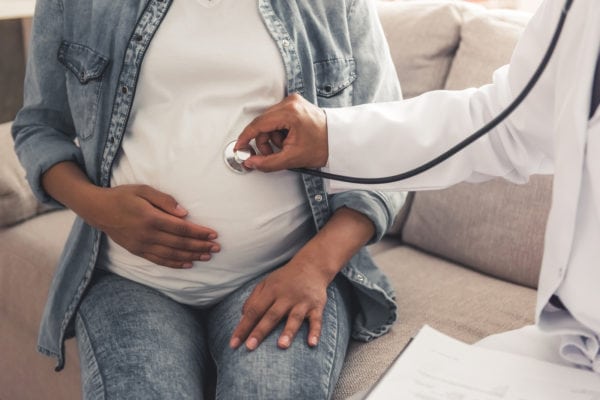[ad_1]
Contemporary revelations and research have underscored a irritating pattern inside scientific amenities: pregnant Black girls are much more likely to be examined for drug use in comparison to their white opposite numbers. The follow raises critical moral and racial bias considerations, and the conversations being sparked are a testomony to the wider problems at play.
Elevating Consciousness On Social Media
In a long-running TikTok publish, Shannon M. Clark, MD, identified that individual teams of girls, particularly the ones of colour, from low-income backgrounds, the ones with tattoos, and the ones perceived as “tough” via scientific pros, are extra steadily subjected to those exams with out their knowledgeable consent. This kind of decision-making, pushed via obvious bias relatively than proof, is known as affected person profiling.
@tiktokbabydoc This kind of follow is destructive. Hospitals were discovered to mechanically drug take a look at pregnant other folks with out their knowledgeable consent. Drug checking out will have to be carried out best with the affected person’s consent and if indicated. #being pregnant #implicitbias #pregnancytiktok #profiling #bias #discrimination #criminalization #criminalizationofpregnancy #informedconsent
♬ authentic sound – 🙋🏻♀️ Content material Strategist
Dropping Gentle Thru Research
Moreover, a up to date find out about printed within the JAMA Well being Discussion board analyzed digital scientific information from a big healthcare device in Pennsylvania, spanning from March 2018 to June 2021. The consequences have been stark: Black girls have been much less most probably than white girls to check sure for medicine, but they have been extra regularly examined. The truth that Black sufferers have been no much more likely to check sure debunks any rationale for the disparity in checking out frequency founded only on substance abuse considerations.
The find out about means that racial bias is the only real reason for this discrepancy. After adjusting for more than one demographic and scientific components, Black girls, even the ones and not using a prior substance use, confronted the next likelihood of being subjected to urine exams upon supply. That is relating to no longer best as it represents an obtrusive racial bias but additionally as a result of the wider implications for the consider Black girls can position within the scientific device.

Such practices erode the bond of consider between healthcare pros and sufferers. As Dr. Alison Stuebe identified, such practices additional the distrust Black girls have in opposition to the healthcare device. This, in a rustic already grappling with prime maternal mortality charges amongst Black and Local American girls, additional amplifies the pressing want for reform.
Proceeding The Dialogue
The discussions rising from revelations like Dr. Clark’s video and the JAMA Well being Discussion board find out about highlight the broader factor of racial disparity and biases in healthcare. Whether or not it’s profiling in line with tattoos, socio-economic standing, or race, the healthcare device’s dedication will have to at all times prioritize impartial, respectful, and evidence-based care.
It’s crucial for healthcare establishments to acknowledge and rectify such discriminatory practices. It will get started with coaching techniques to boost consciousness about affected person profiling, reviewing sanatorium insurance policies to make sure the rights and privateness of sufferers, and fostering an open conversation setting between healthcare suppliers and sufferers.
Each and every person, regardless of their race, look, or socio-economic background, merits dignified, truthful, and respectful remedy. Because the conversations round those discriminatory practices develop, it’s was hoping that they are going to instigate tangible trade within the scientific group.
[ad_2]








